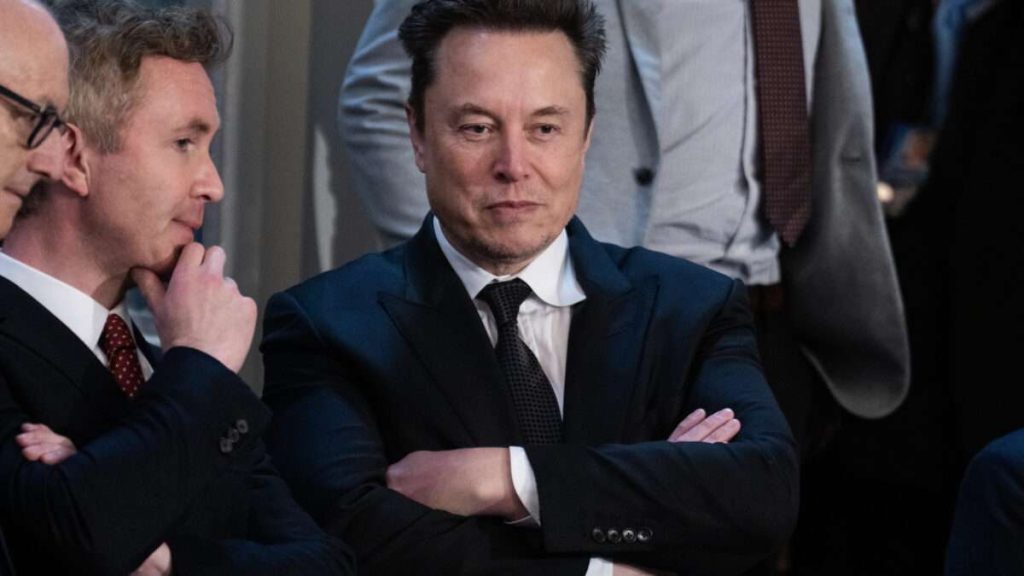A “White Dudes for Harris” Zoom call reportedly raised $4 million in donations for Vice President Kamala Harris’ presidential campaign. After the call, the @dudes4Harris account on X was briefly suspended.
Is this election interference?
If we remain in reality, the answer is of course not.
Even if X CEO Elon Musk ordered the account suspended because of its politics, there would be no (legal) wrongdoing here. X is a private platform, and it doesn’t have any obligation to be politically neutral. Explicitly suppressing pro-Harris content would be a bad business model, surely, but it would not be illegal. Musk and the platform formerly known as Twitter have no obligation to equally air conservative and progressive views or give equal treatment to Republican and Democratic candidates.
But there’s no evidence that X was deliberately trying to thwart Harris organizers. The dudes4Harris account—which has no direct affiliation to the Harris campaign—was suspended after it promoted and held its Zoom call and was back the next day. That’s a pretty bad plan if the goal was to stop its influence or fundraising. And there are all sorts of legitimate reasons why X may have suspended the account.
The account’s suspension is “not that surprising,” writes Techdirt Editor in Chief Mike Masnick (who, it should be noted, is intensely critical of X policies and Musk himself on many issues). “Shouldn’t an account suddenly amassing a ton of followers with no clear official connection to the campaign and pushing people to donate maybe ring some internal alarm bells on any trust and safety team? It wouldn’t be a surprise if it tripped some guardwires and was locked and/or suspended briefly while the account was reviewed. That’s how this stuff works.”
If we step out of reality into the partisan hysteria zone, however, then the account’s temporary suspension was clearly an attempt by Musk to sway the 2024 election.
“Musk owns this platform, has endorsed [former President Donald] Trump, is deep into white identity grievance, and just shut down the account that was being used to push back against his core ideology and raise money for Trump’s opponent. This is election interference, and it’s hard to see it differently,” posted political consultant Dante Atkins on X.
“X has SUSPENDED the White Dudes for Harris account (@dudes4harris) after it raised more than $4M for Kamala Harris. This is the real election interference!” Brett Meiselas, co-founder of the left-leaning MeidasTouch News, posted.
Versions of these sentiments are now all over X—which has also been accused of nefariously plotting against the KamalaHQ account and photographer Pete Souza. Some have even gone so far as to suggest that Musk is committing election interference merely by sharing misinformation about Harris or President Joe Biden, or by posting pro-Trump information from his personal account.
We’re now firmly in “everything I don’t like is election interference” territory. And we’ve been here before. In 2020, when social media platforms temporarily suppressed links to a story about Hunter Biden or suspended some conservative accounts, it was conservatives who cried foul, while many on the left mocked the idea that this was a plot by platforms to shape the election. Now that the proverbial shoe is on the other foot, progressives are making the same arguments that conservatives did back then.
Musk himself is not immune to this exercise in paranoia and confirmation bias. For whatever reason, Google allegedly wouldn’t auto-populate search results with “Donald Trump” when Musk typed in “President Donald.” So Musk posted a screenshot about this, asking “election interference?”
Again, in reality: no.
As many have pointed out, Google Search does indeed still auto-populate with Trump for them. So whatever was going on here may have simply been a temporary glitch. Or it may have been something specific to things Musk had previously typed into search.
Even if Google deliberately set out not to have Trump’s name auto-populate, it wouldn’t be election interference. It would be a weird and questionable business decision, not an illegal one. But the idea that the company would risk the backlash just to take so petty a step is silly. Note that Musk’s allegation was not that Google was suppressing search results about Trump, just the auto-population of his name. What is the theory of action here—that people who were going to vote for Trump wouldn’t after having to actually type out his name into Google Search? That they somehow wouldn’t be able to find information about Trump without an auto-populated search term?
“Please. I beg of people: stop it. Stop it with the conspiracy theories,” writes Masnick. “Stop it with the nonsense. If you can’t find something you want on social media, it’s not because a billionaire is trying to influence an election. It might just be because some antifraud system went haywire or something.”
Yes. All of that.
But I suspect a lot of people know this and just don’t care. Both sides have learned how to weaponize claims of election interference to harness attention, inspire anger, and garner clout.
Just a reminder: Actual election crimes include things like improperly laundering donations, trying to prevent people from voting, threatening people if they don’t vote a certain way, providing false information on voter registration forms, voting more than once, or being an elected official who uses your power in a corrupt way to benefit a particular party or candidate. Trying to persuade people for or against certain candidates does not qualify, even if you’re really rich or famous and even if your persuasion relies on misinformation.
Also, content moderation is impossibly difficult to do correctly. And tech companies have way more to lose than to gain by engaging in biased moderation.
So if you feel yourself wanting to fling claims of election interference at X, or Google, or Meta, or some other online platform: stop. Calm down. Take a breath, take a walk, whatever. This is a moral panic. Do not be its foot soldier.
More Sex & Tech News
• The Kids Online Safety Act passed the Senate by a vote of 91-3 yesterday. (Kentucky Republican Sen. Rand Paul, Oregon Democratic Sen. Ron Wyden, and Utah Republican Sen. Mike Lee were the only ones who voted against it. (See more of this newsletter’s coverage of KOSA here, here, and here.)
• A federal court has dismissed a case brought under the Allow States and Victims to Fight Online Sex Trafficking Act (FOSTA) against user-generated porn websites that allegedly allowed the publication of videos featuring a teenager. The person bringing the case said the sites were guilty of “receipt” of the videos. But “receipt of materials or content is, as it were, simply the first step in any publishing regime; if so, then mere receipt of illicit material is not sufficient to preclude immunity under Section 230,” the court held.
• An expansive definition of “child sex trafficking” is being wielded to suggest that dating websites and apps should check IDs.
• The AI search wars have begun.
Today’s Image
Is this election interference? | Cincinnati, 2023ENB/Reason
The post Elon Musk’s ‘Election Interference’ appeared first on Reason.com.







